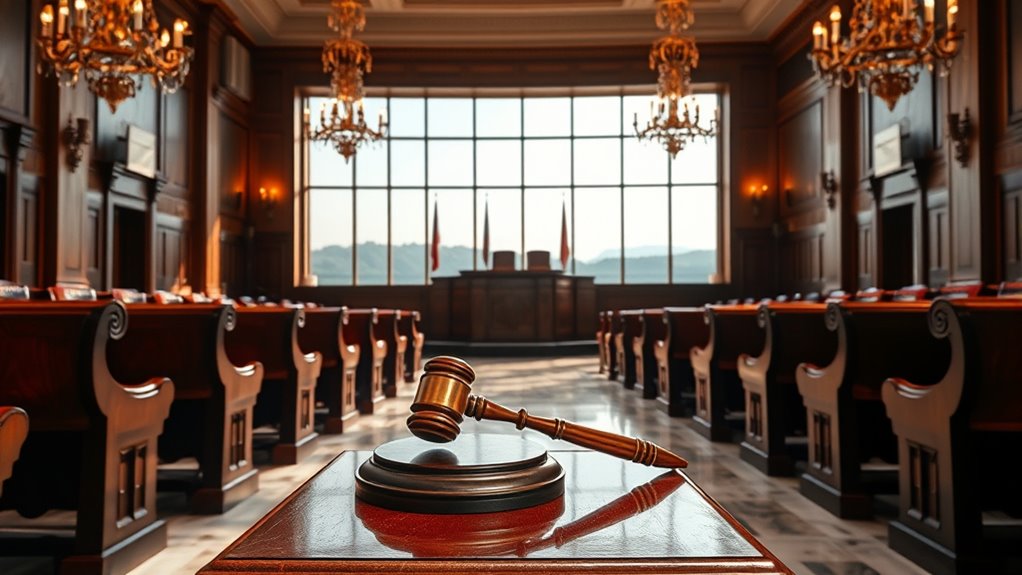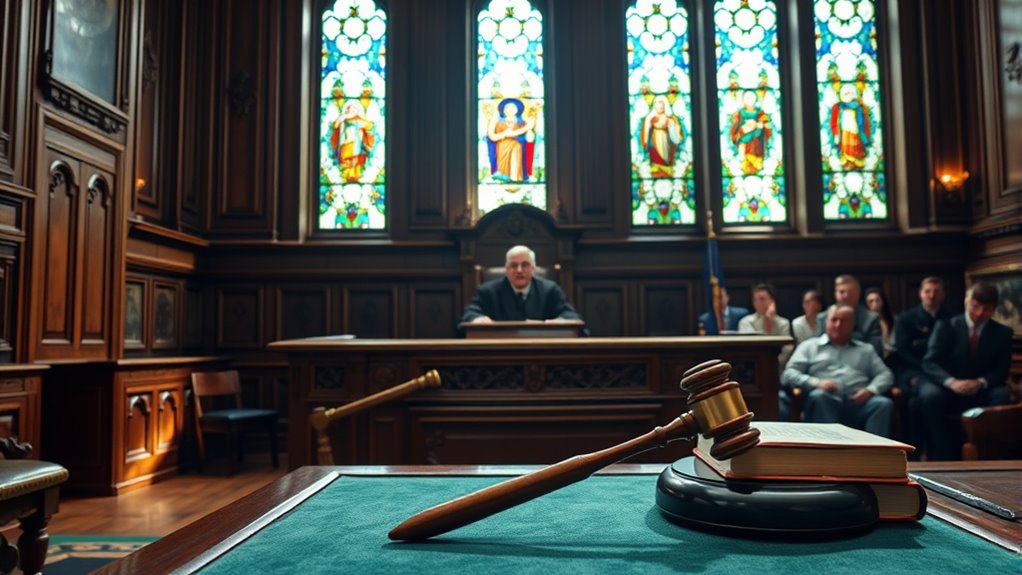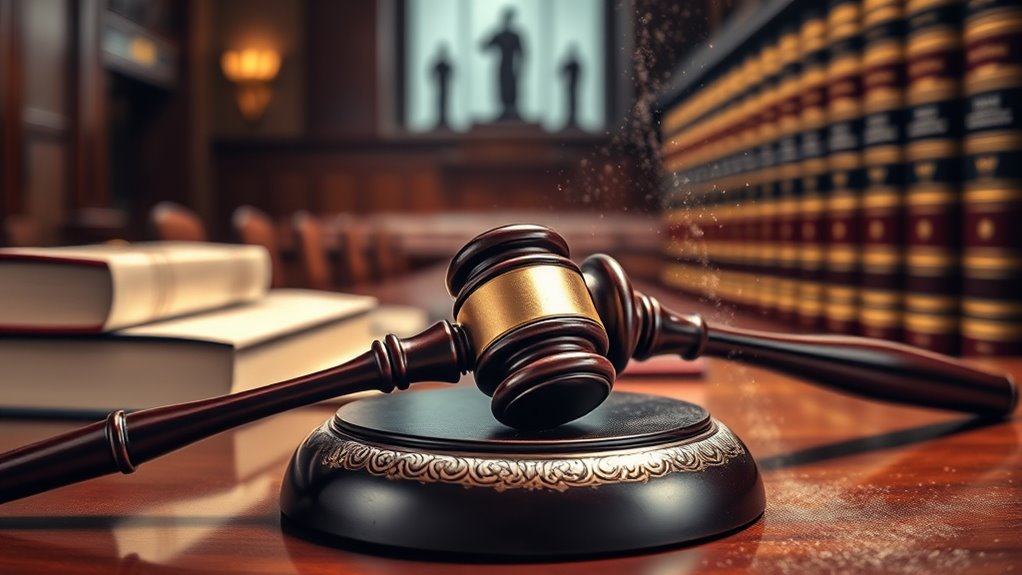Jura’s all about the laws that shape your everyday life! Think of it as the rules of the game when it comes to owning stuff or signing contracts. It’s like knowing the secret handshake to get through life’s legal maze. Founded in 1931, Jura started with home appliances, but now it’s famous for its fancy coffee machines! Curious about how all these laws and rights work together? Keep exploring, and you’ll uncover some fascinating details!
At a Glance
- Jura refers to legal rights and laws that govern individual and collective entitlements in society.
- Founded in 1931, Jura has evolved from household appliances to innovative coffee machines recognized for Swiss precision.
- In judicial practice, Jura signifies the framework of rights applied by courts, guided by legal principles and interpretations.
- Legal education explores jura through case analysis, contract mastery, and understanding the implications of laws on society.
- Understanding jura is essential for navigating legal systems, consumer rights, and personal agreements effectively.
Definition of Jura

When you hear the term “jura,” it might sound a bit fancy, right? But it’s really just a cool way to talk about laws and rights!
The jura significance lies in how it shapes our lives, granting us legal rights like owning property or signing contracts. It’s all about knowing what you can do and what you’re entitled to.
Jura applications pop up everywhere, from courtrooms to everyday agreements. Understanding legal rights is essential for navigating various aspects of life effectively.
Historical Context of Jura
The story of Jura is like a thrilling roller coaster ride through time, taking you from humble beginnings to becoming a coffee powerhouse! Founded in 1931 by Leo Henzirohs, Jura kicked off by making all sorts of household appliances.
But wait—then came the Jura evolution! In the 1980s, they turned their focus to coffee machines, revealing innovations that rocked the market. Their fully automatic machines made brewing barista-quality espresso at home a breeze.
With a commitment to Swiss precision, Jura’s journey shows how they transformed challenges into triumphs, proving that from humble roots, greatness can brew! Today, Jura is recognized for its fully automatic machines, which continue to set the standard in the coffee industry.
Jura in Judicial Practice

Jura isn’t just a fancy word you’d hear in a courtroom drama; it’s actually packed with meaning in the legal world!
When you engage in judicial practice, jura refers to the collective rights and laws courts consider. Think of it as the legal framework guiding decisions.
Courts aren’t just following party arguments; they’ve a duty to apply their own judicial interpretation, thanks to the principle *iura novit curia*. This means they can explore legal theories that mightn’t even be mentioned! Additionally, understanding the concept of BPA-free materials can be crucial when evaluating the implications of certain laws on consumer products.
Types and Components of Jura
You’ve probably heard the term “jura” thrown around in legal conversations, but what really makes it tick?
Well, it’s all about the rights and laws that shape our lives! Here’s a quick rundown of the types and components of jura:
- Legal Principles: The backbone of our rights framework.
- Substantive & Procedural Law: They define what rights you have and how to enforce them.
- Jurisdiction: Where and how laws apply.
- Individual & Collective Rights: From property rights to public rights.
Understanding jura gives you insight into the legal systems that protect us all. Isn’t that fascinating? Additionally, exploring the best coffee makers can enhance your daily routine, just like understanding jura enhances your knowledge of the law.
Jura and Legal Education

When diving into legal education, it’s like stepping into a world where knowledge meets power, and trust me, it’s pretty exciting!
You’ll explore jura principles, learning how laws shape society. Picture yourself analyzing cases, mastering contracts, and even arguing in moot court—talk about a thrill!
The jura implications help you understand the real-world impact of legal decisions. Plus, with nearly 200 accredited law schools in the U.S., there’s a community waiting for you.
Whether you’re eyeing a JD or a Master’s, you’ll connect with like-minded peers, diving deep into the fascinating world of law together. Additionally, you can enhance your study sessions with a cup of ground coffee, which can help improve focus and comprehension.
Let’s get started!
Comparative Legal Systems
Legal education gives you a solid grounding in various legal concepts, but it’s super important to understand how different legal systems operate around the world.
Legal education provides essential knowledge, but grasping global legal systems is crucial for a comprehensive understanding.
Here are some key points about comparative legal systems:
- Types of Legal Frameworks: Common law, civil law, religious law, and customary law are the main categories.
- Jurisdictional Variations: Laws can change dramatically based on where you are.
- Codification vs. Precedent: Civil law relies on written codes, while common law follows court decisions.
- Legal Pluralism: Many places mix different legal norms, creating unique legal landscapes.
Additionally, understanding how different legal systems impact international business practices can be crucial for global operations.
The Role of Judges in Applying Jura

Judges play a super cool role when it comes to applying jura, and it’s more than just sitting behind a big desk and banging a gavel!
They use judicial discretion to interpret cases, meaning they get to decide how the law fits each unique situation. It’s kinda like being a legal detective, piecing together clues from laws and past rulings to find justice.
They guarantee fairness and keep everything running smoothly in court.
Juridical Relationships and Their Implications
Juridical relationships are like the threads that stitch our society together, connecting people and organizations in all sorts of ways.
Juridical relationships weave the fabric of society, linking individuals and organizations in diverse and meaningful ways.
They’ve a real juridical significance because they shape our rights and duties. Think about it:
- Contracts create obligations.
- Marriage forms a legal bond.
- Citizenship grants rights and responsibilities.
- Commercial agreements link businesses.
These connections need legal interpretation to guarantee everyone understands their roles. Additionally, understanding how drip coffee makers can enhance the flavor of your brew can be compared to recognizing the nuances in these relationships.
When you grasp these relationships, you tap into a powerful network that helps resolve disputes and enforce commitments.
The Impact of Jura on Legal Rights and Duties

When you think about how rights and duties interact, it’s a bit like a dance where everyone has to know their steps.
The jura philosophy highlights that every legal right you hold means someone else has a duty to respect it. If you’ve ever borrowed a book, you know the importance of returning it—your right to read it comes with the duty to give it back.
In jura applications, this balance keeps society moving smoothly. So, whether it’s free speech or property rights, knowing your rights and responsibilities makes you a better dance partner in life’s legal tango. Additionally, understanding the significance of legal rights and duties can enhance your awareness of how these principles apply in everyday situations.
Let’s keep stepping together!





